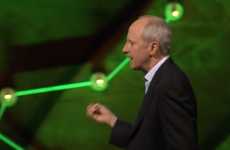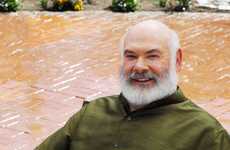
Hallam Stevens Keynotes
Hallam Steven's speaking engagements focus on his research on the intersectionality of information...

Need Inspiration?
Get inspired by 4,000+ keynote speaker videos & our founder, a top keynote speaker on innovation.
Hallam Steven's Social Context and Discovery Speech Examines Chance
Vasiliki Marapas — December 4, 2013 — Keynote Trends
References: youtu.be
Hallam Steven's investigates the perceived notion of serendipity within science in his social context and discovery speech. Steven's argues that discoveries that are often largely attributed to luck actually have more to do with the social and political contexts that they were unearthed in. In order to do so, Steven's uses three examples: Einstein's theory of relativity, Henri Becquerel's discovery of radio-activity and the inception of Viagra. With each example, Steven's illustrates that the scientists in question had a more complete knowledge than history gives them credit for.
In the case of Viagra, the Pfizer company was originally running a drug trial for heart disease when trial participants began reporting better erections as a side effect. Though this is generally taken for granted as a lucky incident, Steven's argues that Pfizer was able to capitalize on research on the biochemistry of erections. This research was part of a larger process about how people thought about impotence and disease; for instance, it went from being an inevitable effect of aging, to a psychological block, to being regarded as a molecular problem that could have molecular solutions.
Each example suggests that discoveries are suited to the time and place in which they occur, and as Steven's asserts, the best scientists are aware of the inner workings of their lab as well as the world around them.
In the case of Viagra, the Pfizer company was originally running a drug trial for heart disease when trial participants began reporting better erections as a side effect. Though this is generally taken for granted as a lucky incident, Steven's argues that Pfizer was able to capitalize on research on the biochemistry of erections. This research was part of a larger process about how people thought about impotence and disease; for instance, it went from being an inevitable effect of aging, to a psychological block, to being regarded as a molecular problem that could have molecular solutions.
Each example suggests that discoveries are suited to the time and place in which they occur, and as Steven's asserts, the best scientists are aware of the inner workings of their lab as well as the world around them.
0.5
Score
Popularity
Activity
Freshness
















